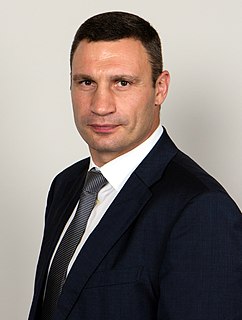A Quote by Arvind Kejriwal
My job is to change the system so all of India can shine.
Related Quotes
Capitalism does not permit an even flow of economic resources. With this system, a small privileged few are rich beyond conscience, and almost all others are doomed to be poor at some level. That's the way the system works. And since we know that the system will not change the rules, we are going to have to change the system.
I agree with O'Toole that custom and comfort are impediments to change. However, it is important to recognize that resistance to change is logical as well. The new "change masters" literature seems to take change as the norm. It isn't. Humans naturally see change as risky because it is risky, just as mutations in genes are mostly destructive. You would not want to go to work were everything changed every week! The phone system, the office assignments, who reports to who, and the whole set of job expectations.
If you depend on a secret for your security, what do you do when the secret is discovered? If it is easy to change, like a cryptographic key, you do so. If it's hard to change, like a cryptographic system or an operating system, you're stuck. You will be vulnerable until you invest the time and money to design another system.
































